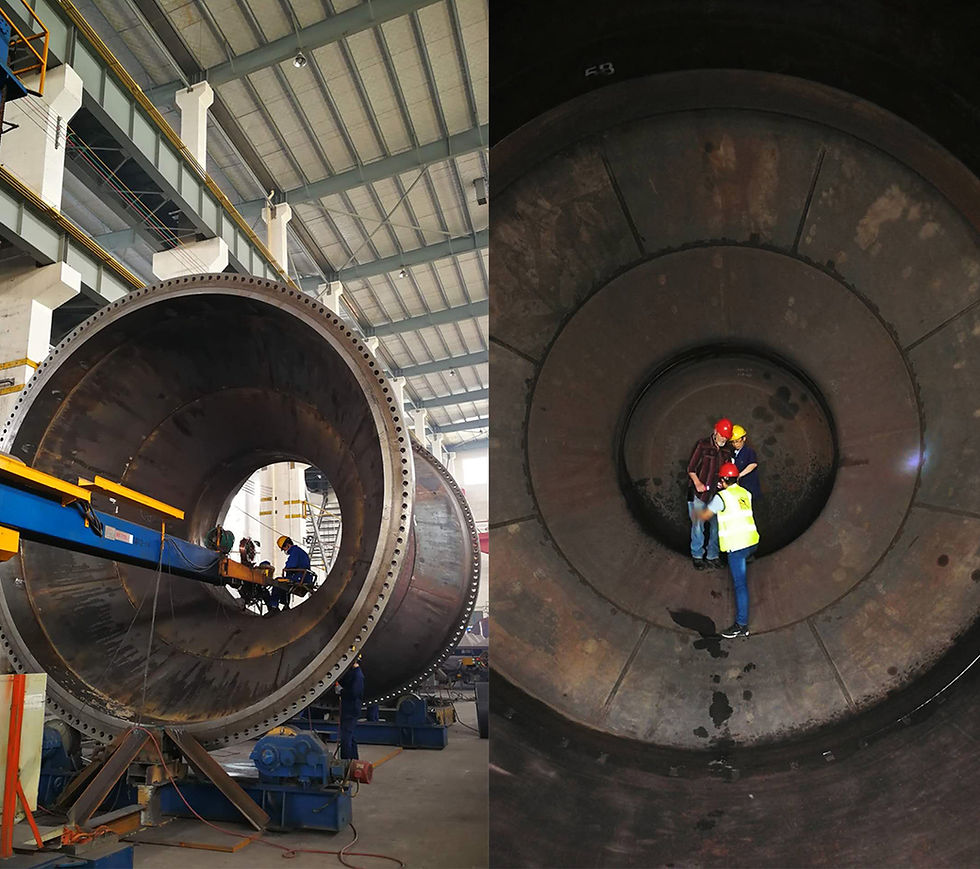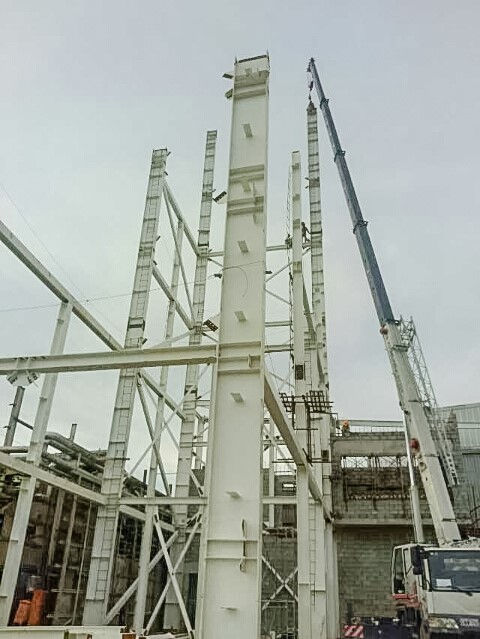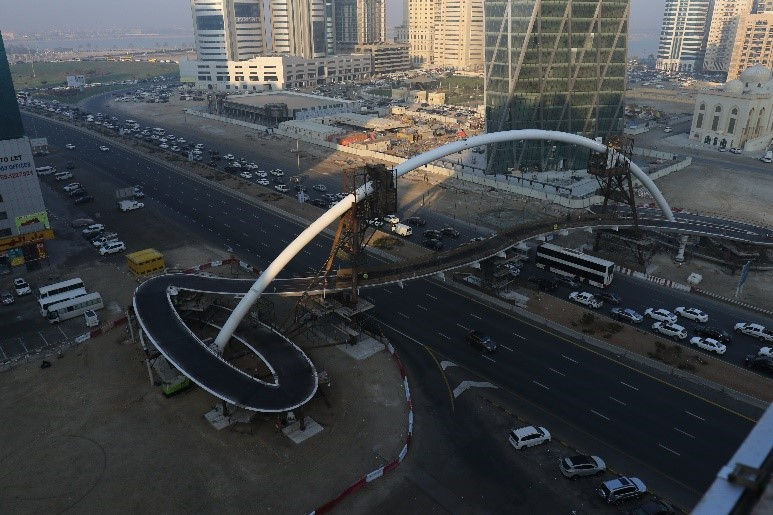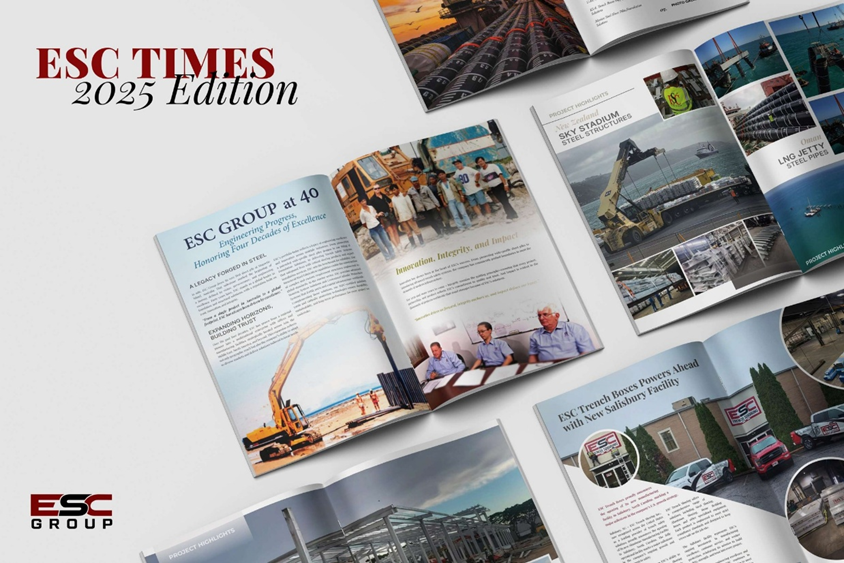Safety Aspects of Structural Steel
- chanhonkit
- Jan 5, 2022
- 3 min read
Structural steel has long been one of the most utilized materials in different magnitudes of many fabrication and construction works. Steel structures can be an integral part or almost the entirety of Steel Bridges, Pre-engineered/ Prefab Steel Buildings, Offshore Structures, Heavy Steel Fabrication Units, Pressure Vessels, Material Handling Structures, and more.
While studies and discussions have shed light on aspects of cost, strength and durability, and speed of installation, many are still skeptical about the advantage of structural steel in terms of safety.
There are features of steel itself and behaviors as a structure which has positive influence to safety.
Here is to explain some of the most notable among them.
Structural steel and reinforced concrete both produce structures that are strong enough to withstand fire, strong winds, heavy snows, termites, and fires. However, steel structures have the most significant advantage over concrete structures when comes to behaving against earthquakes.
Lightness and ductility of steel helps the structural frame to absorb and reduce earthquake’s destructive impact. High-strength steel connections allow slight deformation at the joints but manage to hold members from separating, preventing easy collapse of the building or sections under stress. According to an article from The New York Times, steel has better performance than concrete in seismic zones. This is ultimately the reason why earthquake-prone Japan generally avoids the use of concrete for above-grade structures. It is because concrete is rigid, heavy, and lacking resilience.
Besides earthquakes, steel framed structures perform better against natural phenomena such as hurricanes and snow loads, and man-made circumstances like explosions. The extraordinary tensile strength of steel is the reason behind it.
Steel is non-combustible and does not ignite nor spread flames. This property helps a steel structure to prevent rapid spread of fire and sudden collapse. Although steel loses strength when exposed continuously to extremely high temperatures, it gives warning as it buckles or deflects before finally crashing. That moment, which can be as fast as a blink of an eye, or a couple of seconds, means everything in a matter of life and death.
Steel structures are conductible or well-grounded and are less probable to be hit or damaged by lightning. A steel-framed building permits lightning current to pass harmlessly through the steel members then into the ground. Materials with greater resistance to electricity are more likely to absorb structural damage when struck by lightning. A steel building with a properly installed lightning protection system is safe against that fearsome 1,000,000 volts of electricity.
Labor works using steel solutions can be reduced up to over 50% compared to other alternatives. The lesser work force employed at a given project, the lesser lives are exposed to danger. Risks and hazards associated to heavy congestion and traffic at work areas are also eliminated.
Pre-fabricated steel building solutions appears to make construction time significantly shorter. The shorter duration to complete a project also means lesser time of exposure to hazards. Pre-fabrication of multiple structural steel elements in controlled environments not only promote quality but minimizes works at heights. Because steel components are delivered to the site as assemblies, minimal number of workers and timeframe is required to finish the installation.
Recycling is a process that enhances environmental safety. Steel is the most recycled material at present with at least 80% of its kind generated from recycled products. Steel can be recycled repetitively or can be reused without further processing. Steel is a greenhouse material contributing to not just the safety of a team of workers or a group of building occupants but the planet Earth.
Quality assurance check on steel structures is an easier task to perform because all members are exposed and accessible. This is essential when integrity of structures, after occurrence of any kind of phenomena, must be assessed whether capable to safely continue its service or not.

Some experts claim that the overall performance of any building against seismic activity is more a function of design rather than the material used in construction. However, structural steel is obviously becoming a top choice of designers and owners because of its promising properties and characteristics.
Do not take chances, seek for professional assistance! Please contact us at chanhonkit@escpile.com visit our website www.escescsteelstructures.com.






